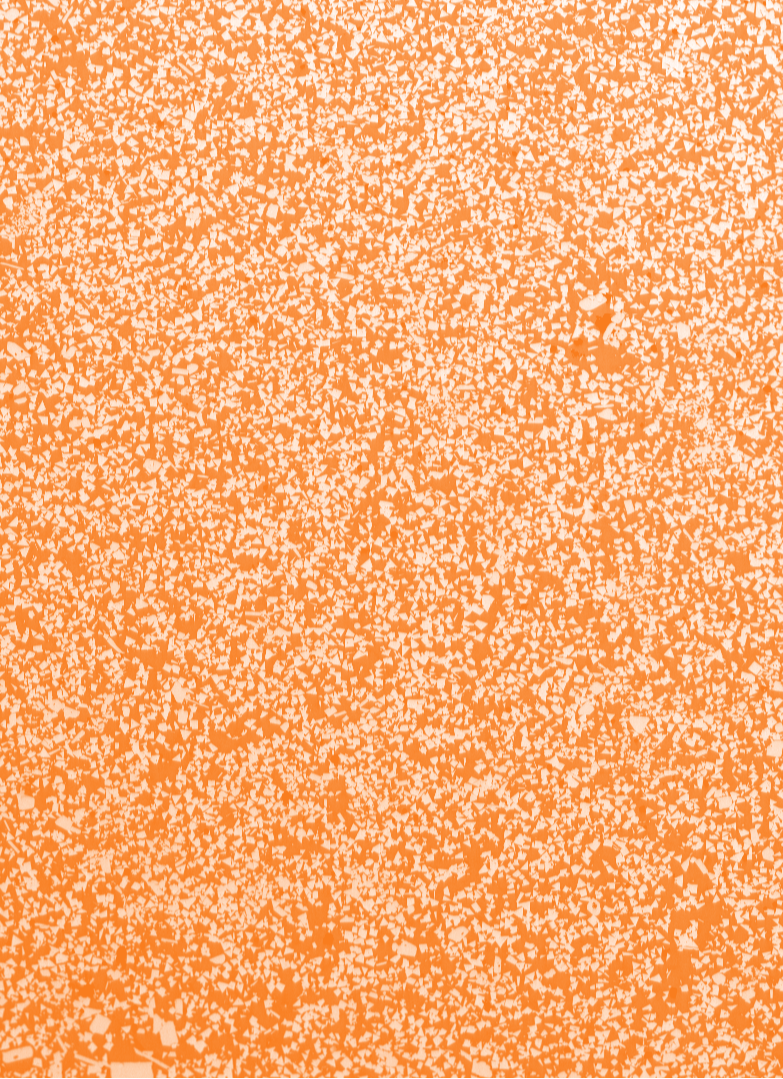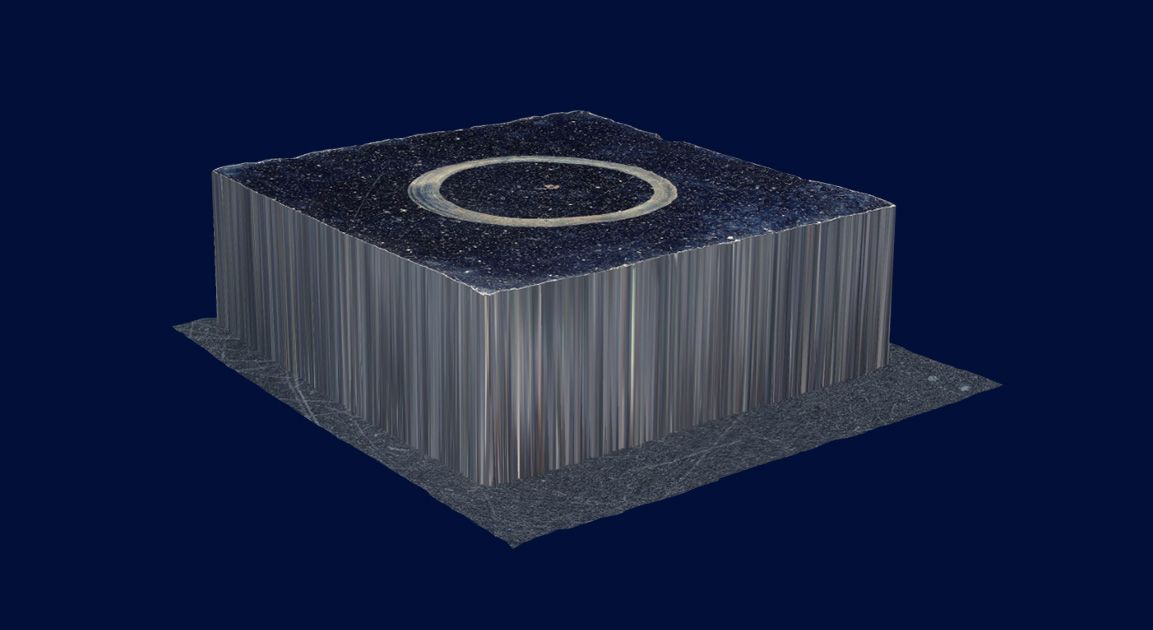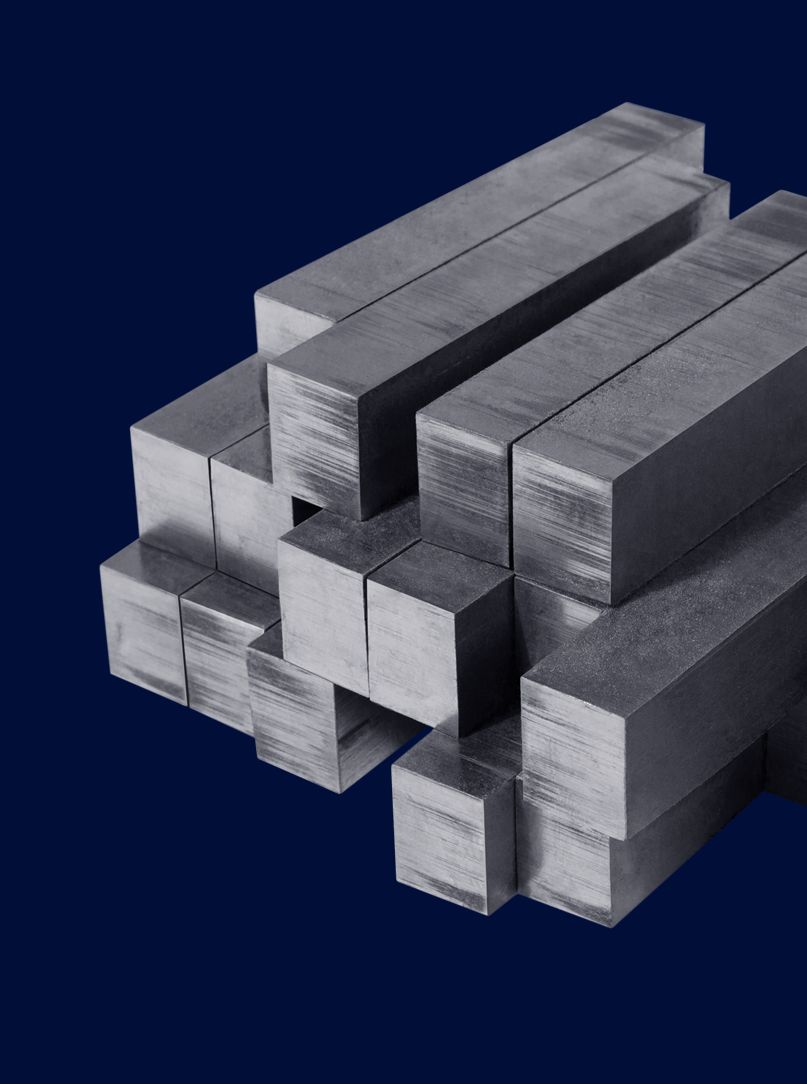Composites
1IC
Layer
2IC
Zone
3IC
Cast Composites
Product
Technology for producing composite zones in castings based on Fe-C alloys, i.e. cast iron and cast steel using reactive components.
The process of obtaining a composite zone involves placing a system containing reactive components in the mould cavity. The mould cavity is then flooded with the selected liquid alloy, which reacts with the components. This creates a composite zone reinforced with particles of tungsten carbide (WC) or titanium carbide (TiC) in the desired part of the casting. The produced composite zone is characterised by a wear index several times lower than that of the alloy from which the casting was made. Field testing of castings containing the composite zone, reinforced with WC particles, confirmed their longer service life by over 100% in comparison with their counterparts without the zone. The product is produced in a one-step casting process and the resulting composite zone can be characterised by wear resistance similar to certain types of cemented carbides (WC) and cermets (TiC), except with far better flexural strength and most importantly – superior product integrity.


License
Innerco offers licenses for technologies from the InnerComposites (IC) family used to produce local composite reinforcements in casting products based on iron alloys, i.e. cast steel and cast iron. They allow strengthening with hard ceramic particles of the casting in its top layer – 1IC or adapted to the wear profile zone – 2IC. Both technology variants together provide ultra-high abrasion resistance. We are in the final stages of developing the final member of the family, cast composites – 3IC, in which reinforcing particles are distributed throughout the casting capacity. This form of partnership is complemented by a full range of services related to the technology transfer process and the ability of the Innerco team to execute the full new product development cycle.
The common feature of the InnerComposites technology family is the formation of reinforcing particles directly in the liquid casting melt, thus ensuring the highest possible quality of the resulting metal matrix composite material. Our offer is addressed to global market leaders in the production and/or service of machinery and equipment and vehicles,
dedicated to the mining, cement, energy, metallurgical, rock and mineral processing, agricultural and chemical industries, supplying wear parts. The following is a general overview of the InnerComposites 1 IC, 2 IC and 3 IC technology family.
Questions and technical support: +48694474547 | Send message
The general characteristics of the
InnerComposites 2IC family are presented below.
2IC Composites
The 2IC zones are produced in a one-step casting process using reactive components. This makes it possible to protect a selected area of the casting with a composite material between 5 mm and 40 mm thick. The composite zone can contain between 40% and 80% TiC or WC particles by volume.
The 2IC solution is dedicated to high and very high wear conditions observed in cone crushers, impact crushers, as well as screens, mills, various types of teeth for crushers, excavators, loaders, agricultural equipment, pumps, etc. One of the key factors for the performance of these production lines is
dimensional, stability, reliability and long life of wear parts. For this reason, we focus on developing cast composite products with high functionality tailored to the application. Below you can see selected properties of composite materials produced using 2IC – WC and 2IC – TiC MMC InnerComposites technology.
Wear resistance*,
(wear index *10-9
[um3/Nm])
- Martensitic cast steel
- Top global MMC TiC
- Innerco MMC TiC
- Innerco MMC WC
Median Vickers
hardness, [HV30]
- Innerco MMC WC
- Innerco MMC TiC
- Top global MMC TiC
- Martensitic cast steel
Flexural strength,
[MPa]
- Martensitic cast steel
- Innerco MMC WC
- Innerco MMC TiC
- Top global MMC TiC
Key features
Castings
Standard casting vs high-functionality MMC castings
Laboratory
We are constantly developing new technologies to produce metal matrix composites in castings. Our laboratories test and analyse new materials’ mechanical, functional, and physical properties. We have access to apparatus, machinery and devices that allow for their full characterisation. In addition, in advanced research techniques, Innerco closely cooperates with leading research units in Poland, ensuring the highest quality and efficiency of research.

Manufacturing
We currently have a pilot line for low-volume production of reactive components dedicated to our 2IC composite zone technology. Responding to market needs, we as early as in Q4 2023 that will ensure large-scale production of reactive components. While our factory is being built, together with our partners we will ensure that you have access to reactive components in the necessary quantity.


